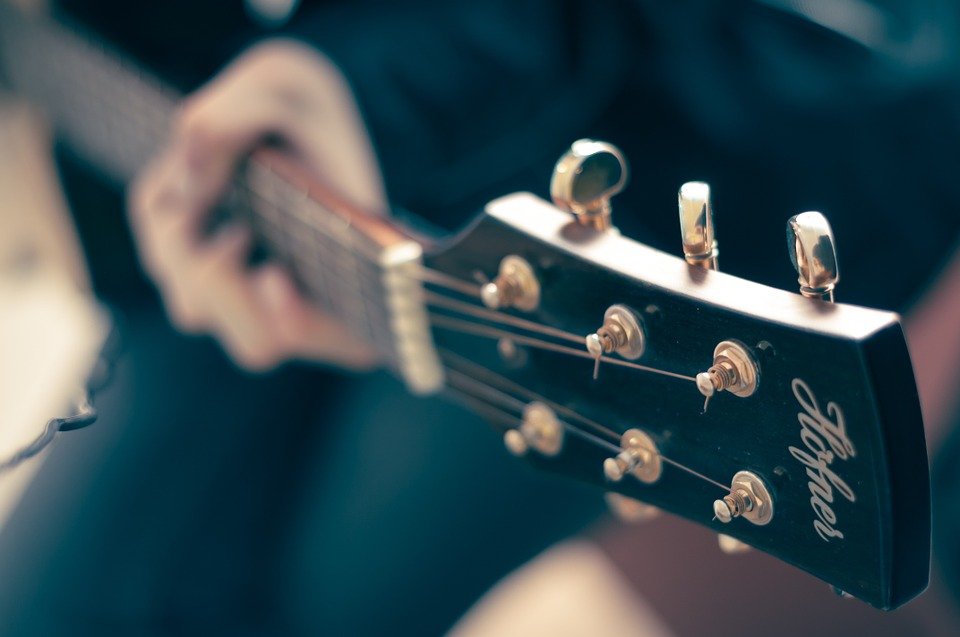When learning classical guitar, simple is better. Start with the basics before pursuing the advanced level and master classes. Keeping it simple will also increase your chances of not quitting, especially for an absolute beginner. You can always work your way to the bigger picture later.

The key is to start now, keep going, and transform the mistakes you commit into noticeable guitar progress. In no time, you can reap the perks of downloading free classical guitar Christmas music notes and TABs.
In this blog post, discover how you can get started with your classical guitar lessons today!
Tips to Learn Classical Guitar for Beginners
Just do something with your classical guitar:
Learning to play a classical guitar starts by placing your fingers on the guitar strings and just doing something with it. If you nitpick guitar techniques and details early, you might get frustrated and quit easily.
Develop a routine:
Reputable classical guitar instructors recommend writing down a list of what you need to practice. This way, you will have a guide on what to do while playing guitar. The order of the practice sessions does not matter. What is important is that you will always have something to do while holding your classical guitar.
Set a classical guitar corner:
Setting a quiet place to learn classical guitar will keep you from getting into conversations or doing something else. By narrowing your visual field or facing the wall, you get to focus more on playing your classical guitar and mastering techniques.
Once you have chosen the best location for your classical guitar courses, make sure it has everything you need. This includes your classical guitar, a tuner, and whatever paperwork you must work on.
Set a time for daily practice:
To help you get focused on your lesson, set a time to practice every day. Make sure to put it on your daily planner or calendar, or set an alarm for it.
If you find it impossible to do long practices, just pick up your guitar and play songs for at least 3 minutes.
The main point is that you hold your classical guitar and remind your brain and fingers that they must learn the instrument.
Learn the chords:
Classical music is organized around different chords. Whether you prefer to use a book, online classical guitar lessons, free lessons or play along with video lessons, chords are the foundation of playing the guitar.
Some students believe that new chords are only for strumming folk singers, but that is wrong. Guitar chords require you to use several fingers at a time. They will train you to recognize patterns so you can play classical guitar music.
Start using classical guitar sheet music:
It might take a while to feel effortless and comfortable using classical guitar sheet music. But if you start reading notes immediately and play something from the notes on a page, it can feel very rewarding.
You don’t have to understand all the fine details of every dot of ink. The important point is that you can recognize the notes and play them on your classical guitars.
The music or sound you play does not have to be classical. You can choose any sheet music you want, including Christmas music notes.
Do some finger exercises every day:
How well your fingers move is among the biggest improvements you will notice when you start to learn classical guitar. Initially, your fingers may be clumsy. But as you practice, you can see significant progress in your guitar playing.
Finger exercises refer to anything that will get your fingers on the strings. For instance, you can place one finger at a time on the strings.
Include off-guitar exercises:
Adding off-guitar exercises to your routine can also help. For instance, make it a habit to fully open and close your hands several times because this will get your joints lubricated and the muscles toned.
Easy stretches are great options, too, as they can improve circulation and inform your fingers that there is something new to play.
Keep your classical guitar visible:
If your classical guitar is in plain sight, you will most likely pick it up. So, make sure the case is open, or the guitar leans in a corner. If not, consider hanging it on your wall.
Set a low bar for success:
Easy wins will create momentum. Thus, you must set your bar to success low:
- Pick up your classical guitar
- Play new chords at least once
- Do simple exercises
- Play one note on a sheet music page
Gauge your progress:
Measure your progress by looking at how far you have come instead of how far there is to go.
Avoid judging yourself compared to professional guitarists with decades of lessons. Instead, think of how your fingers felt when you started playing classical guitar and compare it with how comfortable you are right now with switching your fingers from one string to another.
The classical guitar is a great instrument for beginners because it’s easy to learn. With all levels of instruction available, from private lessons to group classes, there’s a program that will work with your schedule and budget. Look for professional classical guitarists and learn classical guitar today!




